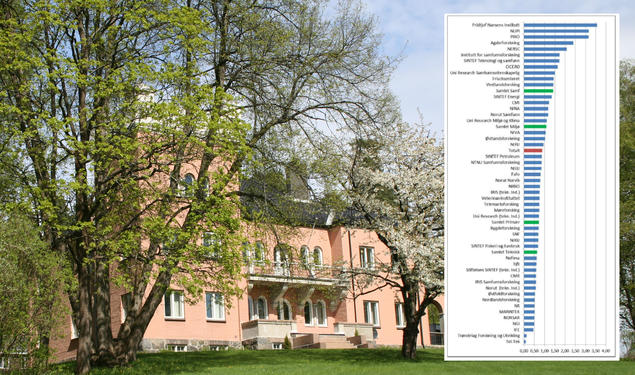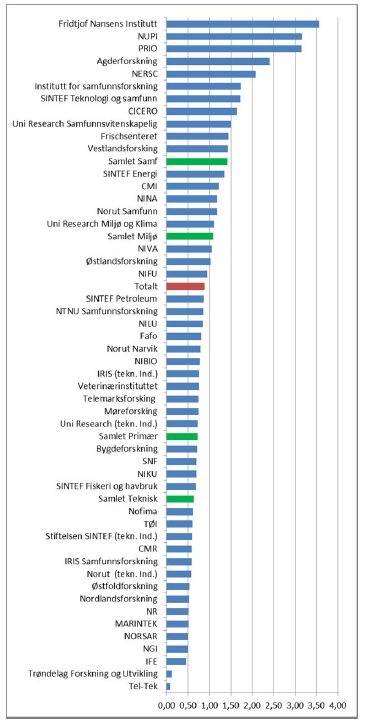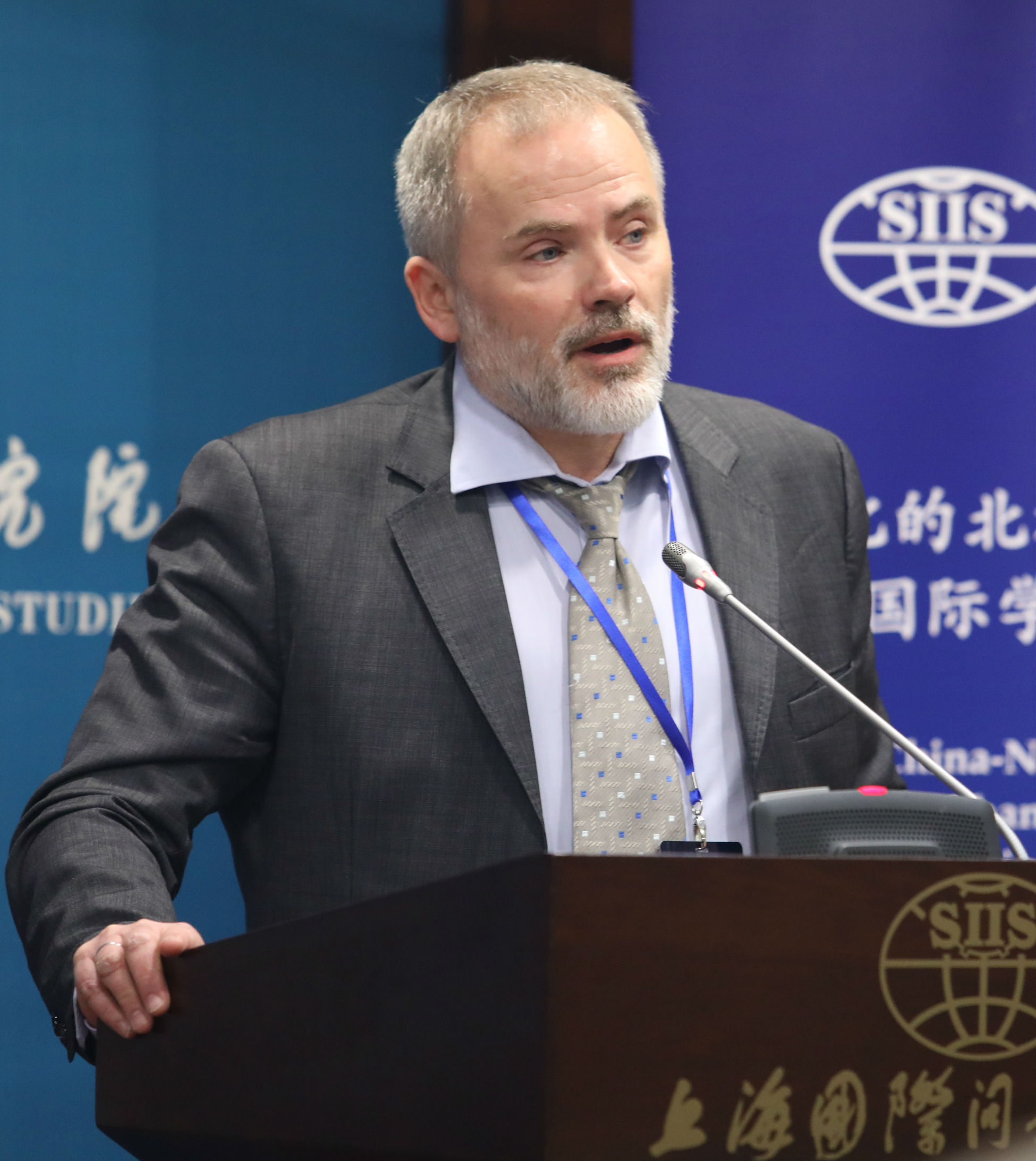Top position once again for FNI

Once again, the Fridtjof Nansen Institute (FNI) ranks as the number one most publishing independent research institute in Norway.
This is the fourth year in a row that FNI maintains this frontrunner position.
 The ranking is presented by the Research Council of Norway in their annual report for the institute sector, and it is based on both the number of academic publications per research institute, and the publication points corresponding to each publication. Books produce more points than articles; publishing in prestigious journals or with acclaimed publishers typically mean a higher reward than publishing in less known journals and publishers.
The ranking is presented by the Research Council of Norway in their annual report for the institute sector, and it is based on both the number of academic publications per research institute, and the publication points corresponding to each publication. Books produce more points than articles; publishing in prestigious journals or with acclaimed publishers typically mean a higher reward than publishing in less known journals and publishers.
Highest score ever
In the latest ranking, which is based on the institute sector’s 2016 publications, the FNI ranks as the number one most productive institute, with a total of 3,57 points per researcher – the highest publication score ever registered in the institute sector. This places FNI at clear first position, well ahead of the runner-up, The Norwegian Institute of International Affairs (NUPI) which had 3,16 publication points per researcher, and The Peace Research Institute Oslo (PRIO) on third place with its 3,15 points.
The average score among the social science institutes was 1,4, and lower for the other institute groups (industrial-technical institutes, agricultural and environmental institutes). However, across the board productivity seems to be rising compared with previous years, the report concludes.
«Fantastic results»
 'These results are nothing less than fantastic for us. We have a staff that produces a steady stream of academic publications, across the board of our various focus areas. These results will always vary somewhat from year to year, but the last few years’ results show that we are indeed at the very top of academic publishing at the moment', says FNI Director, Geir Hønneland.
'These results are nothing less than fantastic for us. We have a staff that produces a steady stream of academic publications, across the board of our various focus areas. These results will always vary somewhat from year to year, but the last few years’ results show that we are indeed at the very top of academic publishing at the moment', says FNI Director, Geir Hønneland.
You can learn more about the publication score ranking and read the full annual report for the institute sector here.
Learn more about FNI's key research areas:

